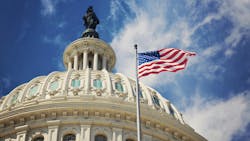How to Streamline and Simplify BEAD Deployments
Working with contractors early to get ahead of things and prevent serious consequences.
In May 2022, the National Telecommunications & Information Administration (NTIA) released the first Notice of Funding Opportunity (NOFO) for the $42.5 billion-dollar Broadband, Equity, Access and Deployment (BEAD) Program.
Since then, NTIA has issued a series of additional guidelines, waivers, and FAQs on such topics as Build America Buy America (Buy America), how federal CFR Part 200 regulations apply to BEAD, permitting, and environmental assessments, with more guidance expected.
On top of all the federal rules, every state and territory must submit to the NTIA for approval its Initial Proposal Volumes 1 and 2 on how it will administer its own BEAD implementation.
Collectively, this is a massive amount of information to sift through and digest.
If you didn’t realize it before, BEAD is the most complicated and complex broadband funding program ever administered—but that doesn’t mean that prospective applicants should turn the other way.
The challenge for applicants is not just to develop a competitive application that will check all the boxes but to create a project budget that will stand up to the rigors of the program and not leave an applicant unexpectedly underfunded by millions of dollars. The challenge for vendors and contractors is figuring out how to insert themselves into this process so they can help applicants successfully navigate this process.
Let’s take a look at how contractors can support applicants in the pre-application process to streamline, simplify, and mitigate the risk of BEAD deployments.
Budgetary placeholders and estimates based on prior projects or experience are not likely to be accurate. BEAD is more expensive due to fair labor and wage requirements, workforce development, cybersecurity, Buy America requirements, etc.
On Your Mark, Get Set, Go!
After two years of waiting, BEAD is here, and the timeline for deployments is suddenly accelerating. As of the writing of this article, seven states and the District of Columbia have received approvals for their Initial Proposal Volume 2 and have been authorized to implement BEAD.
What is becoming evident is that as soon as a state receives Volume 2 approval—it is ready to go. For example, Kansas received its Volume 2 approval on April 25 and immediately announced that its prequalification window would open May 13 ahead of a July 9 opening for its grant window. Louisiana and Delaware are expected to launch their grant windows before July 1 but neither has announced a date as of yet.
This means that applicants are out of time to begin the process of pulling a competitive grant application together.
Effectively, we have entered the Ready-Set-Go phase of BEAD.
Building the Buy America Supply Chain
The singular threshold requirement for BEAD is that all products, whether purchased with federal or matching dollars, must meet the Buy America requirements. On February 23, NTIA released its final Limited General Applicability Nonavailability Waiver (Waiver) of the Buy America Domestic Content Procurement Preference for BEAD.1
The waiver does the following key things: first, it completely exempts all broadband electronics from the requirement that 55% of the cost of components must be sourced in the United States. It also exempts most broadband electronics from the requirement that products must be manufactured in the United States except for optical line terminals (OLTs), OLT line cards, OLT optics modules, and standalone optical network terminals (ONTs), which must be manufactured in the United States.
It also requires enclosures to be sourced and manufactured in the United States and requires fiber to be manufactured in the United States.
It cannot be emphasized enough that Buy America compliance does not mean you need to buy products from American companies. What matters is whether a product not waived is manufactured in the United States, and the manufacturer abides by the standards set in the waiver.
Now that the Buy America rules are settled, the vendor and contractor community need to understand that while supply chains are healthy, now is the time to start placing pre-orders and orders for Buy America compliant products. This is especially pertinent for the products that must be manufactured in the United States as manufacturers need accurate demand planning (even if conditional upon receipt of BEAD award) to help inform production volumes and delivery schedules.
Within the next 18 months, 56 states and territories will be simultaneously competing for resources to simultaneously build $42.5 billion dollars’ worth of federally funded network infrastructure projects.
Accurately Developing the Grant Budget
The biggest risk in BEAD is that the budget that is submitted and approved by the state granting authority is accurate and that the project can be built in the timelines provided in the grant agreement. This means that budgetary cost estimates must be more than just estimates.
Costs must be accurate because if an awardee underestimates costs, they are on the hook to pay the delta to complete the project on time as approved, or they risk default and may need to pay back federal funds. The best way to develop an accurate budget is for an applicant to lock in suppliers and contractors in the pre-application process before the grant request is submitted.
This means that BEAD applicants who “partner” with suppliers and contractors in the application will be best positioned for success.
Applicants who are used to doing procurements after an award is received know that BEAD is not your typical grant program. Budgetary placeholders and estimates based on prior projects or experience are not likely to be accurate. BEAD is more expensive due to fair labor and wage requirements, workforce development, cybersecurity, Buy America requirements, etc. Plus, the cost of labor and resources will increase the higher the demand and the longer an awardee waits to lock in its contracts.
For contractors and suppliers who aren’t used to processing pre-orders or contracts contingent on a grant award, understand that not only does this help your business plan ahead, but it also sets your customers up for success.
By agreeing to lock in your pricing and resources in accordance with the grant project as submitted, you will close the deal once the award is given.
To accomplish the program goal of connecting the unconnected, we will quite literally be charting new territory across rural America. Borrowing a line from Marshall Goldsmith, “What got us here won’t get us there.”
BEAD requires the entire ecosystem to think differently. Business as usual, in this circumstance, is just not an option. If we as a country are going to meet the moment, we as an industry—including applicants, suppliers and contractors—must work together.
REFERENCE
1. Waiver, www.commerce.gov/sites/default/files/2024-02/BABA%20Waiver%20Signed.pdf
About the Author

Lori Adams
Vice President of Broadband Policy & Funding Strategy, Nokia
Lori Adams currently serves as the Vice President of Broadband Policy & Funding Strategy for Nokia and is a key member of the Nokia Government Affairs Americas Team. In her role, Adams is responsible developing strategies and tools to enable increased company participation in state, federal, and international programs supporting infrastructure deployment by Nokia’s business organizations.
She is a highly skilled telecommunications attorney and senior executive with more than 20 years’ experience and a successful track record in the government and private sector. This includes extensive experience with business development, federal, state, and local telecommunications issues, legal and regulatory matters, grant funding, municipal broadband, strategic planning, project management for large complex projects, public policy, government affairs, lobbying and public speaking. Adams has a Bachelor of Arts in anthropology from the American University and is an honors graduate of the University of Baltimore School of Law.
For more information, visit www.nokia.com. Follow Lori on X @LoriLAdams. Follow Nokia on Facebook, LinkedIn, and X @Nokia.

